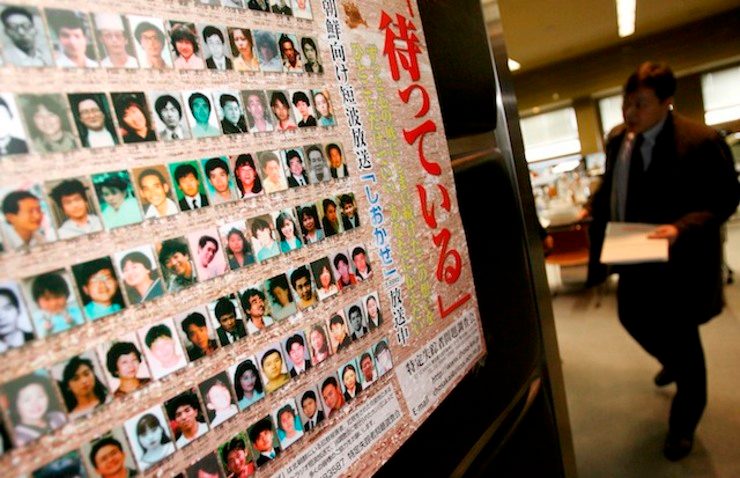SUMMARY
This is AI generated summarization, which may have errors. For context, always refer to the full article.

UNITED NATIONS – Japan launched a major push at the United Nations on Tuesday, May 5, to rally support for efforts to finally resolve the issue of Japanese nationals abducted by North Korea 4 decades ago.
Japan’s minister responsible for the abductions issue, Eriko Yamatani, said she is seeking “specific actions” from countries to turn up the pressure on North Korea and seek information on the fate of the abductees.
“It is not Japan alone that is suffering from this problem,” the minister told Agence France-Presse in an interview.
“It is an international problem and there has to be solidarity and collaboration within the international community so that we can finally resolve the abduction problem and the human rights problem in North Korea.”
The minister was in New York to open a one-day symposium on rights violations in North Korea aimed at drawing world attention to the abductions issue.
Yamatani described the event organized by the Japanese government as a “major leap forward” in efforts to find closure to what has been a painful and highly emotive issue for Japan.
North Korea admitted in 2002 that it had dispatched agents to kidnap 13 Japanese in the 1970s and 1980s who were tasked with training its spies in Japanese language and customs.
Five of the abductees were allowed to return to Japan but Pyongyang has insisted, without producing solid evidence, that the 8 others are dead.
Japanese authorities have documented an additional 880 cases of missing persons who may have also been abducted by North Korea, some of whom were snatched after 2000, Yamatani said.
Deep anger in Japan
Last year, North Korea agreed to reopen investigations of the kidnappings but hopes for answers dimmed after it failed to deliver a promised report in September on the fate of the abductees.
“All Japanese citizens feel as though their own family members have been abducted,” said Yamatani, who was appointed as minister responsible for the issue last year.
“They are all in deep anger and feeling this sadness over the lack of progress.”
Yamatani said she is still hopeful that North Korea will produce “a sincere report as soon as possible.”
Barring that, the United Nations should step in to hold Pyongyang to account and governments should consider imposing sanctions on North Korea, the minister said.
Washington’s envoy on North Korea, Robert King, told the gathering that sanctions had “limited impact” on the Pyongyang regime because it has “very few connections with other countries other than China.”
UN rights expert Marzuki Darusman said setting up television and radio broadcasts targeting North Korea “could effectively change the situation in the country,” depriving the regime of a major propaganda tool.
North Korea has reacted angrily to the symposium, branding it an attempt by Japan to “deceive the people of the world by drawing attention to the so-called ‘abduction’ and ‘human rights’ issues of the DPRK.”
The North Korean mission to the United Nations said it had “already completely resolved” the abductions issue.
Japan’s drive seeks to build on the momentum that followed the adoption last year of a UN resolution calling for the Pyongyang regime to face justice for crimes against humanity.
That followed the release of a searing report by a UN commission of inquiry detailing a vast network of prison camps holding up to 120,000 people and documenting cases of torture, summary executions and rape.
The UN Security Council agreed last year to formally put North Korea’s rights situation on its agenda, despite objections from Pyongyang’s ally China, but it has yet to take any action on the issue.
With Japan now expected to win election as a non-permanent member of the Security Council later this year, North Korea is likely to come before the 15-member council again as a priority for action. – Carole Landry, AFP / Rappler.com
Add a comment
How does this make you feel?
There are no comments yet. Add your comment to start the conversation.